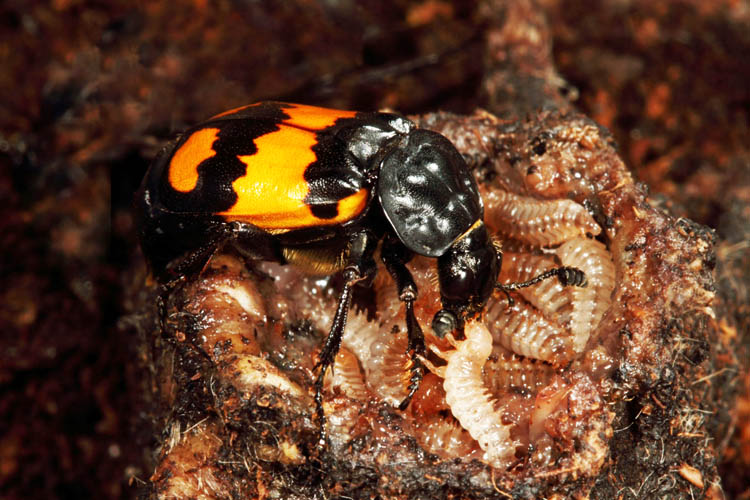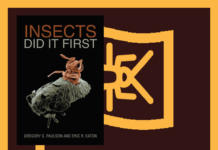The study is saying that when food sources are low, burying beetles limit their offspring. One interesting fact: Burying beetles are unique in that both male and female parents care for the young.
“As humans, we have a pocketbook with a certain amount of currency available to pay for food, housing, and clothing. This pocketbook is limited and informs what we can afford to purchase and support. The beetles are much like this. If resources are limited, then the number of offspring they can successfully raise also is constrained,” said NH Agricultural Experiment Station researcher Daniel Howard, assistant professor of biological sciences.
“Burying beetles are unique because they’re one of the few insects where both the male and female parent provide care to their developing young – much like what we observe in some birds. They find a food source such as a mouse carcass, bury it, then consume and regurgitate it directly to their developing young,” Woelber said.















